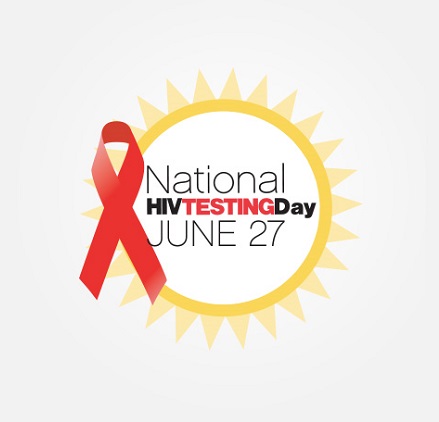The US has estimated that 1 million Americans are living with HIV today – and 1 in 7 do not know they have HIV as they have no symptoms. June 27th is World HIV Testing Day and Women’s Telehealth is working to raise awareness about preventing HIV transmission during pregnancy. Prevention starts with HIV testing and knowing your status.
Since 1995, the CDC has recommended that all pregnant women be test for HIV and STD’s in their first and third trimesters and then receive treatment during pregnancy if they test positive for HIV. Yet, recent statistics estimate that in the US, 31% of pregnant women are still not tested for HIV. Concurrent testing for STD’s allows for specifically testing for syphilis (which is treatable) and the prevention of congenital syphilis in the newborn. HIV infection is more prevalent in Southern States, African Americans, and in young people. Testing can be completed in a doctor’s office, hospital, clinic or home.
If the mom’s HIV test is positive or the mom has known HIV infection, with treatment, the risk of transmitting the infection to the newborn can be reduced to approximately 1% through early testing and diagnosis and the use of anti-retroviral therapy (ART) with increasingly effective medicines. The sooner therapy is started the better. The medications work by preventing HIV from multiplying, keeping the viral load in the body low. This helps a pregnant mom stay healthier and significantly decreases the likelihood of transmission during pregnancy or birth. Some of these medications also pass through the placenta adding extra protection for the baby. Most of these ART meds are safe during pregnancy but the best treatment regimen should be determined by a high risk pregnancy specialist.
If pregnant women present to deliver and there are no records of HIV and STD testing, rapid testing prior to delivery can be done with the mother’s consent. If HIV positive moms have a high HIV viral load at the time of delivery, a C-section may be performed to decrease the chance of transmission during the birth process. Babies born to a mom with a known HIV infection will be treated for HIV for 4-6 weeks after birth. To further reduce risk of HIV transmission, HIV positive moms should not breastfeed their newborns.
We are moving in the right direction with preventing transmission during pregnancy through awareness, testing and treatment! From 2012-2016, diagnosed perinatal HIV infections have decrease by 41%! Many states have laws about HIV and STD testing in pregnancy and surveillance upon delivery. For example, Georgia has the HIV and Syphilis Screening Act that mandates all pregnant women be tested for HIV and STD’s in the 1st and 3rd trimester- unless the woman opts out. Also, the law states that if there is no evidence that testing was done prior to delivery when a woman presents for delivery that a rapid HIV screen be performed, unless the mother declines. Similarly, all babies born to an HIV positive mom are required to be reported to the health department within 7 days of birth in GA. Likewise, all babies born with congenital syphilis are to be reported within 24 hours of birth to the local health district officer in the state surveillance system.
HIV transmission to the baby during pregnancy, birth and breastfeeding can be greatly reduced through early testing, treatment and following some precautions. Women’s Telehealth provides high risk pregnancy care via telemedicine – including care of HIV positive moms and their babies – with great results!
Help us raise awareness on World HIV Testing Day by SHARING this blog or checking out further resources:
– For more info, call CDC 800-232-4636
– To schedule HIV testing in your local GA Health Dept., call 800-551-2728
– To find a testing provider nationally, visit: http://www.greaterthan.org or http://www.locator.hiv.gov~Tanya Mack, President


